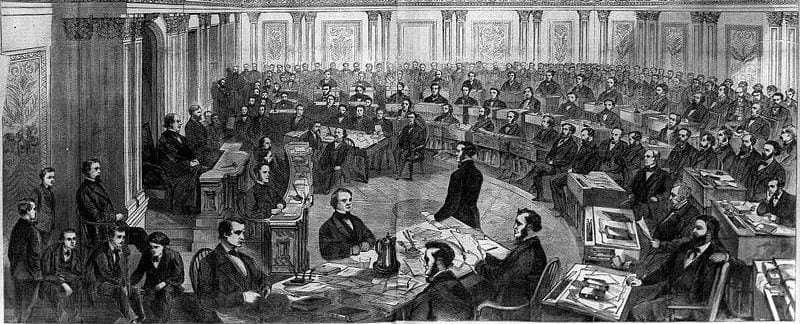The Civil Rights Act ensures equal social opportunities and legal protection regardless of ethnicity, religion, or other personal traits. But did you know that the Supreme Court overturned the Civil Rights Act of 1875 in 1883?
The Civil Rights Act was the second in the United States after the Supreme Court invalidated the first in 1883.
Civil Rights Act of 1875
The Civil Rights Act of 1875 is a federal statute that forbids discrimination in public places. According to the Act, anyone who owns or runs an inn, restaurant, theater, or other public housing facilities cannot refuse to serve someone based on their race.
This Act was enacted in response to the Supreme Court’s ruling in Plessy v Ferguson, which supported segregation laws and said that separate but equal facilities were constitutionally permissible.
This Act was succeeded by the Civil Rights Act of 1964, which made it illegal for anybody to discriminate against others based on their race.
It also compelled companies to provide equitable compensation regardless of gender (Title VII), color (Title I), religion (Title II), or national origin (Title III). Title IX barred gender discrimination in educational institutions receiving government funds. Title IV protected voting rights, while Title VI prohibited racial discrimination in federally funded programs.
The Act is a federal law created in the United States to safeguard African Americans’ rights and civil liberties. The Act forbade discrimination in public areas such as streetcars, theaters, hotels, and restaurants. This Act contributed to the legal precedent for ending segregation and safeguarding black Americans from unfair treatment by state governments. (Source: Constitution US)
Who Authorized the Act?
On March 1, 1875, Congress approved the Civil Rights Act of 1875, which President Ulysses S. Grant signed into law. The Act claimed that all people should be allowed full and equal enjoyment of public accommodations, free of racial discrimination or segregation. It also barred anyone from refusing admission based on race within a public institution. (Source: Constitution US)
Why Was it Passed?
As a result of the Reconstruction Amendments, Congress needed to defend African Americans’ rights. The Civil Rights Act was written with that goal in mind.
It claimed that everyone, regardless of race or color, was treated equally under the law. This Act, one of four civil rights measures passed by Congress during Reconstruction, prohibited racial discrimination in public places and facilities. (Source: Constitution US)
How did the Federal Government enforce the Act?
The Civil Rights Act of 1875, sometimes known as the Enforcement Act, was passed in 1875. Congress enacted it to give teeth to the 15th Amendment, which prevents states from denying citizens the right to vote because of their “race, color, or prior condition of servitude.”
The Act established penalties for restricting public access and preventing persons from voting. The Act also provided federal oversight of elections in places where people with legal voting rights, such as African Americans or women, were denied such rights.
The Act also made it a felony for two or more people to use force to hurt, intimidate, interfere with, oppress, or threaten any citizen exercising his freedom to work.
The federal government implemented it through its attorneys and Department of Justice personnel who collaborated with US Attorneys for litigation under this statute in chosen communities across the country when Congress had not authorized a large-scale program to enforce federal civil rights. In 1976, enforcement was abolished. (Source: Constitution US)
Image from TeachingAmericanHistory
